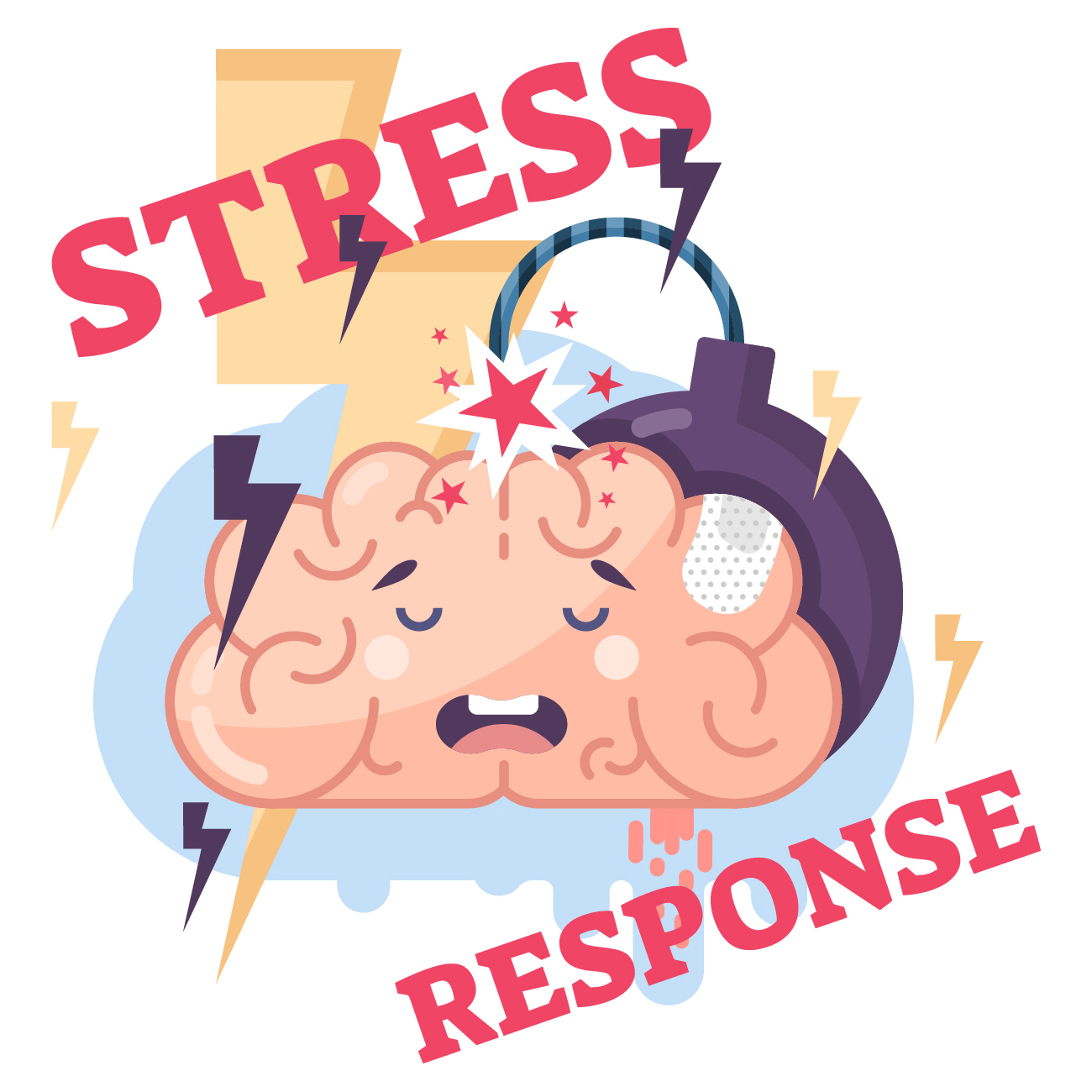Prelude: Appreciation & Gratitude
I’d like to start this article with a simple Thank You to all who continue to work in a capacity serving the public. Whether it is providing health care, outreach, social support, protecting & serving the community, or performing any other “essential” capacity: Thank you! I had to go to the grocery store two days ago and I could say nothing except “Thank you” repeatedly to the store’s few employees with whom I interacted. There’s almost nothing else to say except “Thanks.” I feel like saying “Stay safe” is disingenuous: they know they need to Stay Safe but they really cannot do what is being asked by the CDC (to stay at home) as they go about their work. They are in a very difficult spot – likely one that did not anticipate when signing up for that sort of service employment.
During these unprecedented times, people are having to adjust their perspectives and try to maintain a sense of normalcy and balance during this extremely hard time. In my de-escalation trainings and personal safety consultations, I work with an array of professionals who regularly deal with struggles and challenges. Some of the people with whom I work are accustomed to facing “life and death” issues on a daily and weekly basis in their “normal” worlds prior to this pandemic. Unlike the medical or law enforcement professional who went about their jobs in our pre-COVID world understanding that they may witness death, despair, or significant suffering on any given day, today’s current threats are different. Prior to March 2020, for many of us life’s “unpredictable” situations seemed within the realm of what we knew as possible. However, we now face extreme unpredictability. I know that for many of us working as this outbreak was/is unfolding, we were/are experiencing elements of “pre-traumatic stress” related to not knowing what may come next and where & how the threats to our safety may present themselves. For most of us, the unknown has never been greater. Day to day living seems exceptionally stressful right now. Working with the public has never been more dangerous and stress-inducing. Hopefully, through all of this struggle, we are reminded that we are inter-connected. People are interconnected, even if it feels like we are often disconnected. We are in this together.
Where to begin: Managing our feelings and our emotional responses to stress
For those reading this, you may be struggling with feeling grounded at this time. It is understandable and normal. I am actively staying engaged with many people across my life’s communities right now: family, friends, neighbors, professional colleagues, etc. All of us are feeling more stress in some way: perhaps more anxiety, more worry, more anger, or more confusion. Sure, some people may be in denial of the additional stresses around us right now—that can be the focus of another blog altogether if people are interested. However, for the vast majority of us life’s intensities are amplified right now. It is completely understandable if you feel shaken, distracted, or unsettled at this time.
Quite often, in the face of major life changes our adjustment process begins with a question like “Where do I start with ____ right now?” That blank for could be filled in with many words and phrases: “coping,” “caring for my family,” “caring for my patients,” “not letting the fears and the unknown get the best of me” and on and on. For those that are struggling with one or more of these “where do I start” questions, I encourage you to answer this question: What does my Stress Response look like, sound like, and feel like?
Ask yourself how you might answer this question during normal (pre-COVID) times. Then ask yourself how you might answer this question today/in current times.
When we attempt to answer this question, it helps us come back to ourselves, our “center” so to speak. Now is a great time to come back to who we are, to slow ourselves down a bit as it may feel like our worlds are moving very, very fast right now. “Unravelling” can seem quite rapid. I invite us all to slow down even just a little and consider who we are and how we respond to stress.
Furthermore, when we attempt to understand our Stress Response, we typically have an experience of remembering that Stress Response is something everyone deals with – – some will deal with Stress in ways that are similar to us and some will have responses that are very different from our own. Regardless, the mere understanding of Stress Response helps us normalize the human nature that we all share.
Next steps: Prevention, Intervention, and Post-intervention practices
In many of my consultations and trainings, the neurobiology of human Stress Response is something that is addressed early on as a foundational portion of in-services and supportive discussions. This is relevant for my trainings on “De-escalation and Personal Safety” and “Trauma-informed care” or for consultation services like “team-building” in-services or “debriefings” of exceptional situations. When we talk about how the brain works in general, it can be easier for people to understand, accept, and even adjust their own behavioral responses to stressful situations. But first we have to talk openly about it. We can use the sound research on the science of neurobiology of human stress response to provide an opening for people to understand their own responses, minus judgement or shame. Once we are presented with information in a supportive, non-threatening manner people are more likely to be able to use that information for personal development and making incremental adjustments to their ways of living and responding to stress.
For my “front line” colleagues during this time of extreme stress, I ask you again: What does your stress response look like, sound like, and feel like? When you are answering that question, I ask you if you chose to describe it with words that are descriptive of the physical/behavioral response (e.g, “I feel it in my chest” or “I clench my jaw or my fists,”) or if you chose words that are more emotional and/or judgmental (e.g., “I don’t like myself” or “I want to yell back at them and remind them of what is really important right now”). I ask for this clarification of how you respond as a way to better understand how we consider our stress response. In reality, neither answer is “wrong” (I do not want to add to any shame or humiliation of you: you have the right to have your emotions). That being said, I believe that when we can learn to be “descriptive” first – or, at least primarily – we are able more effectively manage our stress response for our own well-being and for the well-being of others around us.
People do not like to be judged. I often ask in my trainings: “Do you like to be judged?” Rarely do I get someone who speaks up and says “Yes, I like to be judged.” There are those folks but they are very, very small minority. Most of us want to be seen minus judgment.
With this in mind, are we careful to not be judging ourselves? I hope we are, but the reality is that many of us are actually prone to have “judgement” as part of our Stress Response. That will likely only cloud our rational selves. Emotions can & are wonderful elements of being human. However, when it comes to manage Stress it is typically useful to separate emotion and judgement from the science of how our brains and bodies are responding to the stresses around us.
When we adjust our perspectives slightly to the science of Stress Response – in ourselves and in other people – we can then adjust how we may respond to a variety of situations. If I learn about how the amygdala is activated and how I may tend to go towards “fight,” “flight,” or “freeze” response in lieu of the stress on anyone, I am able to see through a normalized lens that all of us have a Stress Response. And while mine may not look exactly like another person’s, I can better understand what others are going through and – importantly – I am will be less likely to take acting-out behavior personally.
Consistency: Maintaining Composure By Not Taking Acting-out Behavior Personally
This last point is significant: If I can repeatedly learn and practice how to not take acting-out behavior personally, I am more likely to respond to stressful situations in a manner that displays composure, mindfulness, and preparedness while also avoiding my making missteps &/or displaying thoughtlessness and a lack of preparation.
In reality, we cannot be prepared for every possible life situation that comes our way. Most of us are given this stark reminder as this year is unfolding: we cannot control or predict everything. Are we able to understand human responses to stress? Are we able to empathize with others around the universality of human Stress Response? If we are, we are more likely to feel connected to others (rather than disconnected) and more likely to feel prepared to respond in a manner that is reasonable and helpful and/or supportive to all involved.
None of this is perfect and we are not perfect. Regardless, I hope that all of us have understandings and tools with managing the heavy mental and emotional tolls that are upon us at this time. For those reading this that are seeking professional support for you and/or your organization, please let me know. We can discuss ways that we can foster attitudes and approaches to best manage during these challenging days/weeks/months. Organizational planning, video conferencing, & providing education & resources to staff are still options for professional support and development during this unique time of our life.
Thank you again for the valuable work you are doing. Thank you for managing the best that you can at this time, considering all that is going on around us. I hope that you are well and coping. If you are not doing well, please let others know. When we let others (with whom we feel “safe”) know what we are feeling, we are likely to find support. If you want, please reach out to me. I know we are all doing some Social Distancing and not having our normal connections to people. That just means it is important now more than ever to stay connected and engaged with each other in ways that are helpful, supportive, non-judgmental, and healing.
Conclusion: We are in this together
We’ve always been in this together, even if that’s not what we are usually taught or reminded of in our lives. We are stronger together. During this difficult time, I strongly invite all of us to see our strengths more than our deficits. I invite us to see this perspective in others as well. Again, if I can help you just reach out to me. I am here.

